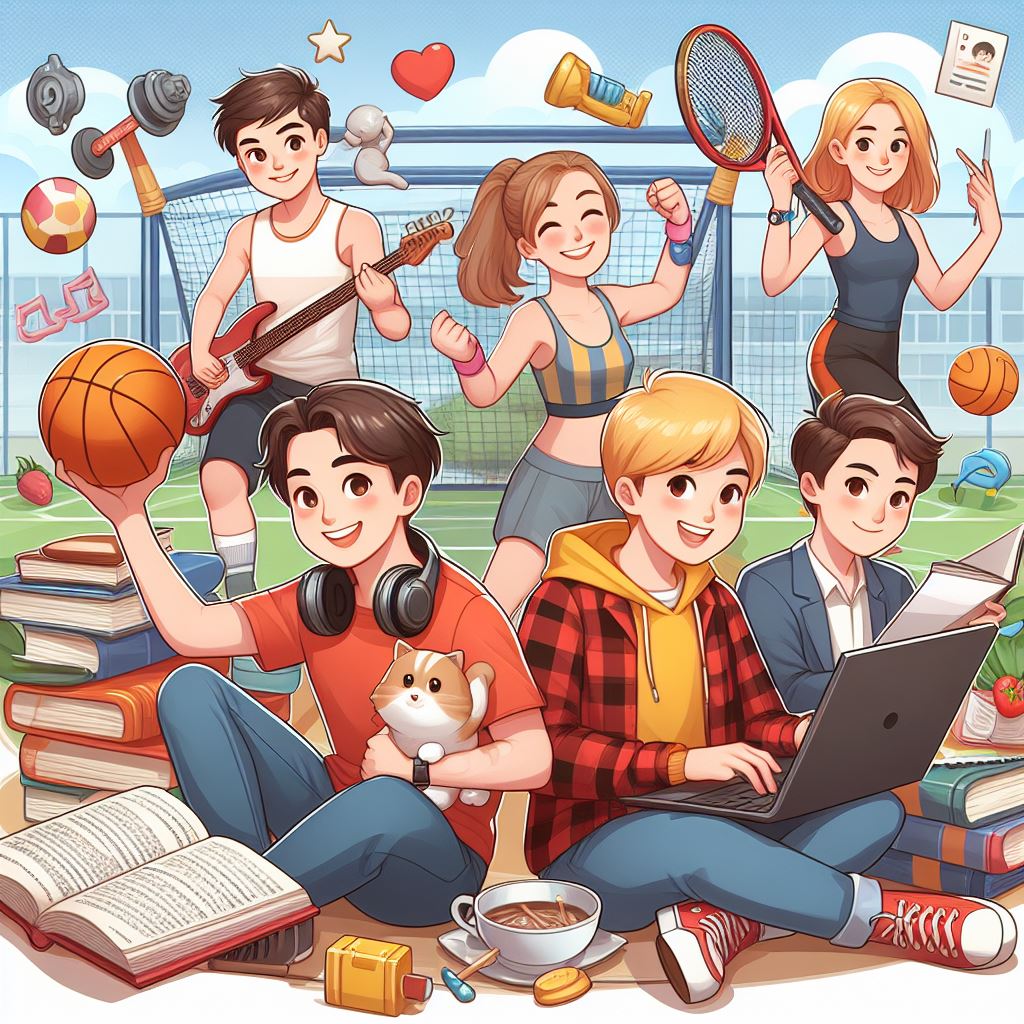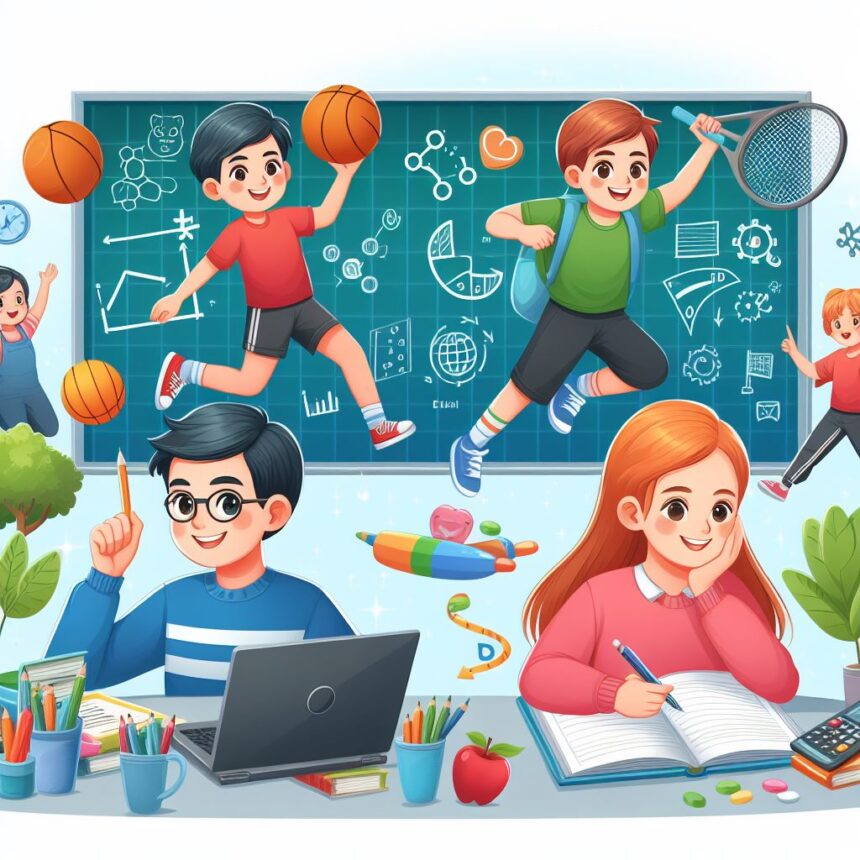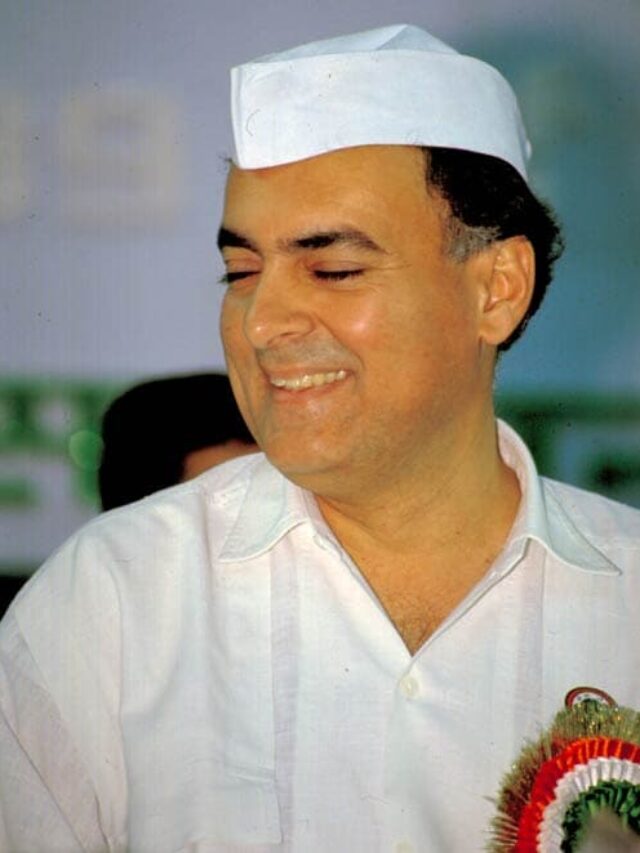10 Essential Role of Sports in Student Education
Sports play a necessary duty in pupil education and learning, contributing to their general advancement and development. It is widely acknowledged that sports have a positive influence on trainees’ scholastic efficiency, physical and psychological health, personal development, and social communiation. By including sports right into their instructional journey, pupils not just enhance their academic success but additionally develop vital life skills that will certainly profit them in the long run.
This article explores the diverse function of sports fit pupils’ instructional experiences, highlighting its impact on scholastic success, social abilities, and character growth. We will certainly analyze the valuable life lessons that sports present, consisting of the relevance of cooperation, fair game, and time management, and discuss the need for a harmonious balance in between athletic quests and academic duties.
Trick Takeaways:
Sports contribute to scholastic success by boosting focus and time monitoring abilities.
Taking part in sports aids develop discipline, willpower, and leadership top qualities.
Sports promote physical and mental health and wellness, avoiding chronic diseases and lowering tension.
Teamwork and cooperation abilities are boosted with sports, enhancing communication and collaboration.
Sports educate trainees vital worths of gamesmanship, justness, and integrity.
Benefits of Sports in Academic Success
Participating in sporting activities not just advertises physical conditioning yet likewise plays a crucial function in enhancing academic success. Right here, we will explore the different methods whlch sporting activities add to academic achievement and overall educational growth.
Boosted Concentration
Participating in sporting activities aids students enhance their concentration degrees, which straight converts right into enhanced scholastic performance. Via routine physical exercise, sports promote the mind, rise blood circulation, and release endorphins, leading to boosted emphasis and mental alertness in the class.
Developing strong time administration abilities is necessary when taking part in sports, as it includes balancing session, games, and responsibilities. This demand for skillful time administration allows athletes to select their tasks’ significance and develop an efficient approach to their academics. The ability of efficiently managing time is important and beneficial for students not just in institution however also in their future.
Enhancing Educational Outcomes
Many studies demonstrate a strong link between athletic engagement and improved academic accomplishment. Pupils who routinely join sporting activities have a tendency to display far better academic probability of seeking college. The abilities and qualities developed via sporting activities, such as self-discipline, hard work, and strength, can be efficiently put on academic quests, fostering a much more diligent and determined approach to knowing.
Pupils that routinely engage in sports tend to attain academic success, as confirmed by higher Grade point averages, minimized possibility of dropping out, and an enhanced likelihood of pursuing higher education.
Improved Cognitive Function
Sports not just profit physical wellness but likewise have an extensive impact on cognitive function. Researches have actually shown that regular engagement in exercises stimulates brain development, improves memory retention, and boosts information processing skills. THese cognitive benefits gotten with sporting activities supply trainees with an one-upmanship in their academic pursuits.
Boosted Discovering Atmosphere
Incorporating sporting activities into the educational curriculum fosters a favorable learning setting. By motivating sportsmanship, fair game, and team effort, schools develop a culture that commemorates partnership, regard, and healthy and balanced copmetitors. This encouraging atmosphere boosts pupils’ total educational experience and produces a stronger sense of belonging within the college area.
By acknowledging the relevance of sports in education adn harnessing its capacity, schools can grow well-rounded people who succeed not only academically but additionally in different aspects of life.
Joining sports is a transformative experience that prolongs much past the academic curriculum, supplying students with vital opportunities for self-improvement and character development. Through sports, pupils can cultivate vital life abilities such as team effort, strength, and self-motivation, while likewise improving their physical well-being and developing into well-rounded people.

Participating in sporting activities teaches trainees the relevance of self-control and time management. To master sporting activities, they should devote to normal practice, follow timetables, and keep a devoted method. This self-control equates into other aspects of their lives, such as academics. They learn to stabilize their time effectively, prioritize tasks, and handle their obligations successfully.
“Taking part in sports not only assists establish one’s character yet also reveals it.” – John Wooden
Joining sporting activities teaches students the relevance of staying committed adn determined, also when confronted whith problems and dissatisfactions. By pushing via these challenges, they build a solid work principles and create to see challenges as chances to find out and enhance. This mindset helps them comprehend that, perseverance, and a willingness to bounce back from setbacks, every one of which are crucial top qualities for achieving success in both their personal and specialist lives.
Another substantial aspect of sporting activities is that it supports leadership qualities in trainees. As they join team sporting activities, they learn to team up, interact, and make decisions collectively. They handle duties and contribute to the team’s general success. This experience helps them establish leadership skills, consisting of efficient communication, problem-solving, and decision-making capacities.
Engaging in sporting activities uses a wonderful chance for students to establish purposes and apply to reach them. Whether they intend to boost their abilities, triumph in a competition, or obtain new abilities, the goals connected with sporting activities motivate pupils to seek quality. This identified technique to attaining objectives not just uses on the sports area yet additionally inspires pupils to establish and achieve goals in numerous aspects of their lives.
The personal development that students experience with sporting activities is very useful. The technique, determination, management, and goal-setting skills they get contribute to there overall advancement, preparing them for future challenges and successes.
Instances of individual growth via sporting activities:
Growth of discipline and time administration abilities
Growing of perseverance and resilience
Improvement of management qualities
Goal-setting and wokr values
Personal Growth Qualities Description
DisciplineSports educate trainees the significance of self-discipline, complying with timetables, and maintaining a concentrated technique.
PerseveranceBy encountering obstacles adn problems in sporting activities, students find out to continue, get rid of barriers, and create a growth frame of mind.
LeadershipParticipating in team sporting activities assists pupils develop partnership, communication, and decision-making skills, cultivating leadership capacities.
Goal-SettingSports supply trainees with a platform to establish and function towards accomplishing objectives, promoting an ambitious way of thinking.
Sports Supporting Physical and Mental Health And Wellness
Along with its scholastic advantages, sporting activities also play a crucial duty in advertising the physical and mental health of students. Routine physical activity with sports has been proven to have many favorable results on general well-being.
The value of sports in students’ lives appears when considering the benefits it gives physical health. Engaging in sports activities assists in stopping persistent conditions such as obesity, diabetes, and cardio problems. The physical exertion associated with sporting activities enhances cardiovascular fitness, reinforces muscular tissues and bones, and improves overall physical endurance.
Participating in sporting activities has an extensive influence on psychological wellness, specifically in regards to tension administration. The physical activity associated with sports sets off the manufacturing of medicines,” which have a calming effect on the mind and body. By using a useful method to take care of the stress of scholastic life, sporting activities participation promotes emotional durability andd total psychological stability.
Taking part in sports regularly has an extensive impact on both physical and psychological health and wellness, fostering a feeling of balance and total health. By making sporting activities a top priority, colleges can play an important role in shaping the lives of their students, promoting their well-rounded development and growth. The benefits of sports expand far past the playing field, furnishing pupils with the physical and psychological strength to excel academ
Sports offer various benefits in boosting both physical and mental health. They aid avoid chronic illness, increase cardiovascular fitness, strengthen muscle mass and bones, improve physical endurance, reduce stress and anxiousness, and promote mental balance and psychological wellness. In addition, sports assist in team effort and cooperation by giving possibilities for pupils to create important interaction and collaboration skills important for success in various areas of life.
When joining sports, trainees discover to collaborate towards an usual objective, whether it’s winning a game, achieving a personal ideal, or improving as a group. This collective setting allows them to connect efficiently, comprehend each other’s toughness and weak points, and make cumulative choices for the benefit of the group.
Whether it’s on the football field, basketball court, or track, teamwork in sporting activities calls for individuals to contribute their special skills and abilities while likewise relying on their colleagues. This cumulative effort promotes trust fund, regard, and interdependence among staff member, as they depend on each other’s capabilities to achieve success.
A study published in the Journal of Sport and Exercise Psychology revealed that taking part in team sports dramatically improved pupils’ social assimilation, feeling of belonging, anbd capability to function collaboratively. The researchers found that sports produced a feeling of unity and friendship amongst participants, reinforcing their bond and permitting them to create lasting relationships.
Participating in team sports likewise educates students the relevance of collaborating and finding common ground. They uncover that attaining their goals is not nearly personal accomplishments, but likewise about just how efficiently they can collaborate as a cohesive unit. This important lesson expands beyond the playing field, affecting their technique and community interaction.
Engaging in sports assists students recognize that attaining success is not something one does alone, yet instead a collaborative undertaking in which each person’s involvement is valuable. It stresses the value of synergy and shows that combining initiatives towards a shared goal brings about much more significant success compared to functioning separately.
Key Takeaways:
Participating in team-oriented sporting activities aids pupils develop communication and teamwork skills.
Sports give a collective atmosphere where trainees learn to interact towords a typical objective.
Synergy in sports advertises depend on, regard, and connection among team members.
Taking part in team sports improves social assimilation and fosters long lasting friendships.
Sports instruct students the worth of participation and concession.
Benefits of Sports TeamworkBenefits of Sports Partnership
- ENhanced communication skills1. Improved analytic capabilities
- Advancement of depend on and respect2. Enhanced creative thinking and technology
- Comprehending the worth of cumulative effort3. Much better decision-making abilities
- Structure strong social relationships4. Promotion of diversity and inclusion
Sports Training Lessons in Gamesmanship and Principles
In the realm of student education and learning, sporting activities work as greater than simply physical activities. They give valuable possibilities for pupils to find out crucial lessons in sportsmanship and ethics. With active participation in sporting activities, trainees gain a deep understanding of justness, regard, and integrity, which are critical worths that prolong past the playing field.
ating in sporting activities imparts a crucial life skill in pupils: the value of justness and gamesmanship. By participating in competitive tasks, pupils learn to respect the rules and policies, perform themselves with integrity, and treat others with dignity and respect, no matter the result. Via their experiences, students create a strong moral compass, learning to win happily, lose with humbleness, and and constantly play with sincerity and justness.
Regard is one more fundamental value instilled via sporting activities. Athletes find out to value their teammates, instructors, challengers, and officials. They recognize the value of valuing others’ skills, opinions, and contributions. This regard reaches personal conduct both on and off the area, promoting a positive and helpful setting for all individuals.
Integrity plays a basic function in molding pupils’ personality in the realm of sporting activities. Athletes are advised to preserve ethical concepts, displaying reliability, reliability, and stability. Displaying integrity during games aids in growing robust ethical and moral worths that them in their academic and personal trips.
Sports play a significant duty in offering a thorough education by instilling vital values. Showing sportsmanship and principles not benefits students in their athletic activities however also equips them for future opportunities. Companies, universities, and universities very value these top qualities, underscoring the significance of
“Gamesmanship for me is when a man strolls off the court and you truly can not tell whether he won or shed, when he carries himself with pride in any case.”
Jim Messenger
Gamesmanship and Values at work: The Tale of Michael Thompson
Michael Thompson, a gifted high school basketball gamer, exhibits the worths of sportsmanship and ethics via his conduct on and off the court. In a critical video game, Michael’s opponent experienced an injury tath left him unable to continue playing. Rather than seizing the opportunity to obtain an advantage, Michael instantly quit playing and showed genuine worry for his challenger’s wellness. He showed an amazing feeling of sportsmanship, earning respect and affection from all that witnessed the incident.
This example highlights the lasting influence of sporting activities in shaping students’ personality and instilling moral values. The lessons learned through sportsmanship and ethics come to be implanted in trainees, helping them navigate challenges and make moral choices throughout their lives.
Advantages of Gamesmanship in different methods, such as promoting team effort and teamwork, building personality and honesty, creating management skills, enhancing partnerships, and fostering favorable connections. Showing sportsmanship and values consists of activities like helping an opponent up after a loss, applauding an exceptional play by the opposing group, showing appreciation for teammates and trains, confessing blunders adn taking duty, and motivating and supporting fellow professional athletes. Sports function as a system for social interaction, providing pupils the chance to involve with others, create new partnerships, connect with similar, adn develop stong bonds through shared rate of interests and objectives, ultimately advertising sociability and unity.
Additionally, sporting activities play a crucial duty in cultivating a feeling of unity and communication, celebrating distinctions and advertising inclusivity. By joining sports, pupils from varied backgrounds and with varying capabilities integrated, linking voids and building long lasting bonds. Via competitors and occasions, students have the possibility to engage with peers from other colleges and areas, expanding their perspectives and establishing a much deeper feeling of neighborhood.
“Sporting activities have the power to unify individuals who may otherwise never ever have crossed courses. Whether as colleagues or opponents, pupils learn to value each other’s capacities, commemorate success, and manage defeat with dignity. These experiences contribute to the growth of strong character and foster long-term friendships,” states Dr. Lisa Thompson, renowned sporting activities psychologist.
Taking part in sporting activities advertises the growth of essential social capacities like collaboration, leading others, and interacting efficiently amongst trainees. Via working together towards shared goals, pupils develop count on and and dependence on their peers, fostering a solid spirit of synergy. These capabilities are not limited to sporting activities and can also profit students in scholastic, work, and individual situations.
Basically, sporting activities supply an effective platform for pupils to get in touch with others, create meaningful connections, and acquire critical social abilities that will certainly profit them throughout their lives. By advertising social communication and fostering a sense of belonging, sports contribute significantly to the alternative growth of pupils.
Stabilizing Sports and Academics
Striking a balance in between sporting activities and academics is crucial for students who want to excel in both areas. While joining sports can provide numerous benefits, such as fitness and personal advancement, it’s important to manage time efficiently to make sure academic success. Below are some suggestions and methods for pupils to find the ideal balance in between their sporting dedications and research studies:
Produce a Set up
Creating a timetable that includes dedicated timne for both sports and academics can help pupils stay organized and concentrated. Allot details blocks of timne for technique, games, and homework, guaranteeing that each activity receives the required attention.
Focus on Tasks
Learning to prioritize jobs is vital when managing sporting activities and academics. Identify necessary assignments, projects, and exams, and allocate sufficient time to complete them. By prioritizing, pupils can guarantee they fulfill their academic obligations while still taking part in their sporting activities.
Learn Time Management Abilities
Time monitoring abilities are important for keeping a balance in vetween sporting activities and academics. Pupils should find out to maximize their time by breaking jobs right into smaller, manageable sections and setting practical deadlines. This strategy aids maximize performance and protect against final stuffing.
Communicating with Instructors and Educators
Preserving good interaction with trains and teachers is crucial for handling both sports and academics effectively. It is essential for students to connect their accademic obligations to coaches and look for aid when required, for example, by requesting modifications to exercise times throughout important examination periods. Likewise, educating educators concerning upcoming sports events can aid guarantee they provide the required assistance and advice.
Take advantage of your leisure time
Make good use of any kind of free by using it properly. Rather than aimlessly surfing social media sites or enjoying television, take this opportunity to look at your course notes, end up little jobs, or participate in some light exercise. By making use of breaks and downtime successfully, trainees can progress in their academics and remain active.
Practice Self-Care
Remember that self-care is essential when stabilizing sports and academics. Deal with physical and and psychological wellness by getting sufficient sleep, consuming a balanced diet, and engaging in tasks that aid take care of stress and anxiety. Prioritizing self-care makes sure trainees have the power and emphsis to excel both on the area and in the class.
Trainees can strike a harmonious equilibrium in between their sports and academics by putting these strategies right into action. With efficient communication and good time administration, they can master both locations, taking pleasure in the benefits of a thorough education and learning.
In summary, sporting activities are essential for student education and learning as they supply different benefits for academic progress and individual growth. This write-up emphasizes the significance of sports in cultivating teamwork, supporting private growth, and boosting general well-being.
By joining sporting activities, students not only boost their scholastic efficiency however likewise create important life skills such as discipline, perseverance, and management. Sports allow pupils to learn beneficial lessons in gamesmanship and principles, educating them the worths of justness, respect, and stability.
Furthermore, sporting activities function as a platform for social communication, permitting pupils to construct partnerships and broaden their social circle. It is important for students to strike an equilibrium beteen sporting activities and academics, handling their time properly to master both locations.
Incorporating sporting activities right into a pupil’s instructional experience is fosters a well-shaped growth that extends past the class. It is crucial that teachers, moms and dads, and pupils alike recognize the significance of sporting activities and promote involvement in exercises, enabling people to capitalize on the varied advantages they provide.
The importance of sporting activities in an educational setting can not be overemphasized, as they have an extensive impact on both scholastic accomplishment and specific advancement. Participating in sporting activities improves cognitive abilities, such as emphasis and business skills, ultimately resulting in much better scholastic end results. Furthermore, sports participation cultivates important life abilities, including self-discipline, durability, and the capacity to lead others.
Just how do sports enhance scholastic success?
Sports contribute to academic success by enhancing concentration, time management skills, adn academic performance. Routine participation in sporting activities helps students create discipline and time administration skills, enabling them to stabilize there athletic dedications with their researches.
Sports play a vital role in pupils’ lives by enhancing their physical and psychological well-being, encouraging team effort and collaboration, giving vital values of sportsmanship and stability, and helping with chances for social engagement and relationship structure.
Just how do sporting activities promote physical adn mental wellness amongst pupils?
Sports promote physical and psychological health amongst pupils by motivating routine physical activity, which can help avoid chronic illness and improve general wellness. In addition, sporting activities offer chances to decrease tension, improve mental focus, and boost psychological wellness.
Exactly how do sports foster teamwork and partnership?
Sports foster team effort and collaboration by requiring students to work together towards an usual objective. Group sporting activities instruct valuable communication and participation skills, assisting students find out the relevance of cooperation, valuing teammates’ staminas, and comprehending the power of collective initiative.
What values are shown through sports?
Sports teach worths such as sportsmanship and principles. Students discover the importance of fairness, regard, and honesty wtih joining sporting activities. Performing with gamesmanship and embodying moral habits assistance create a postive and comprehensive sporting atmosphere.
in sports activities supplies an unique opportunity for individuals of neighborhood and social bonding. With participation in sporting activities occasions and competitions, pupils can create long-term partnerships, develop new friendships, and broaden their social media networks, ultimately boosting their social connections
Accomplishing an equilibium between sports pursuits and academic duties is an usual obstacle for students. To efficiently browse this dual commitment, pupils must establish solid, and design a structured regimen that suits both sports training and academic coursework. By understanding both their sporting activities and academic undertakings.








